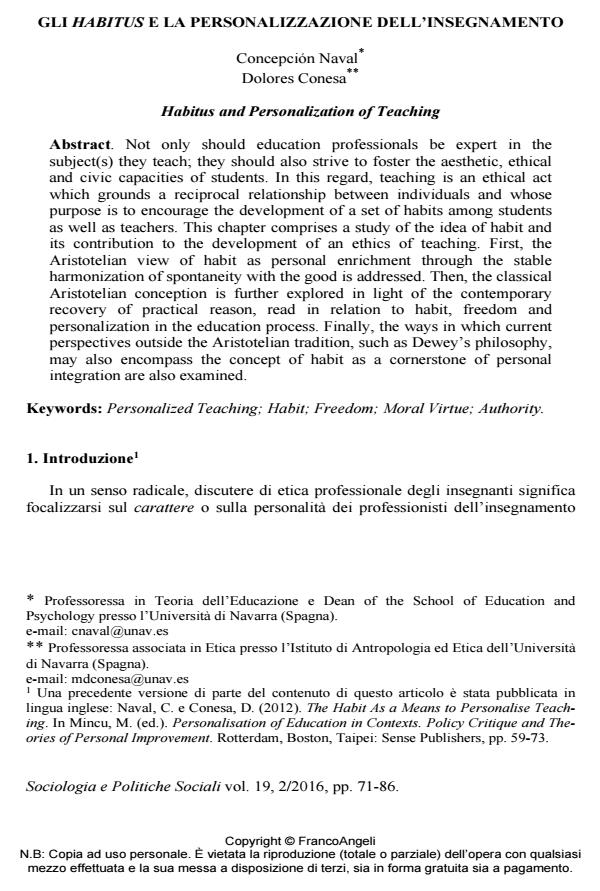Gli habitus e la personalizzazione dell’insegnamento
Journal title SOCIOLOGIA E POLITICHE SOCIALI
Author/s Concepciòn Naval, Dolores Conesa
Publishing Year 2016 Issue 2016/2
Language Italian Pages 16 P. 71-86 File size 225 KB
DOI 10.3280/SP2016-002005
DOI is like a bar code for intellectual property: to have more infomation
click here
Below, you can see the article first page
If you want to buy this article in PDF format, you can do it, following the instructions to buy download credits

FrancoAngeli is member of Publishers International Linking Association, Inc (PILA), a not-for-profit association which run the CrossRef service enabling links to and from online scholarly content.
Not only should education professionals be expert in the subject(s) they teach; they should also strive to foster the aesthetic, ethical and civic capacities of students. In this regard, teaching is an ethical act which grounds a reciprocal relationship between individuals and whose purpose is to encourage the development of a set of habits among students as well as teachers. This chapter comprises a study of the idea of habit and its contribution to the development of an ethics of teaching. First, the Aristotelian view of habit as personal enrichment through the stable harmonization of spontaneity with the good is addressed. Then, the classical Aristotelian conception is further explored in light of the contemporary recovery of practical reason, read in relation to habit, freedom and personalization in the education process. Finally, the ways in which current perspectives outside the Aristotelian tradition, such as Dewey’s philosophy, may also encompass the concept of habit as a cornerstone of personal integration are also examined.
Keywords: Personalized Teaching; Habit; Freedom; Moral Virtue; Authority.
Concepciòn Naval, Dolores Conesa, Gli habitus e la personalizzazione dell’insegnamento in "SOCIOLOGIA E POLITICHE SOCIALI" 2/2016, pp 71-86, DOI: 10.3280/SP2016-002005